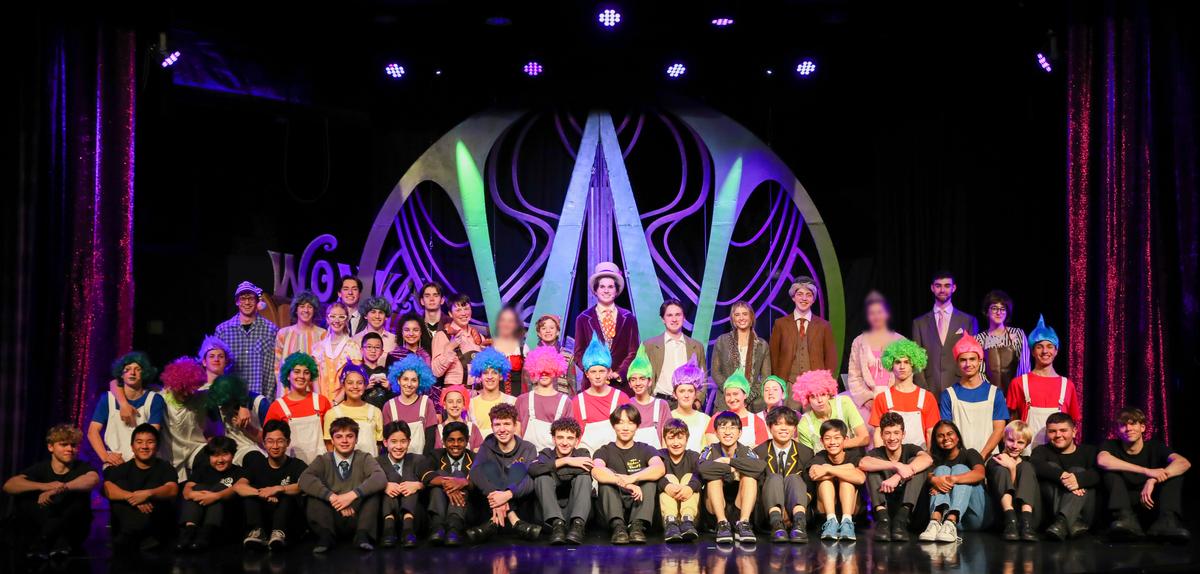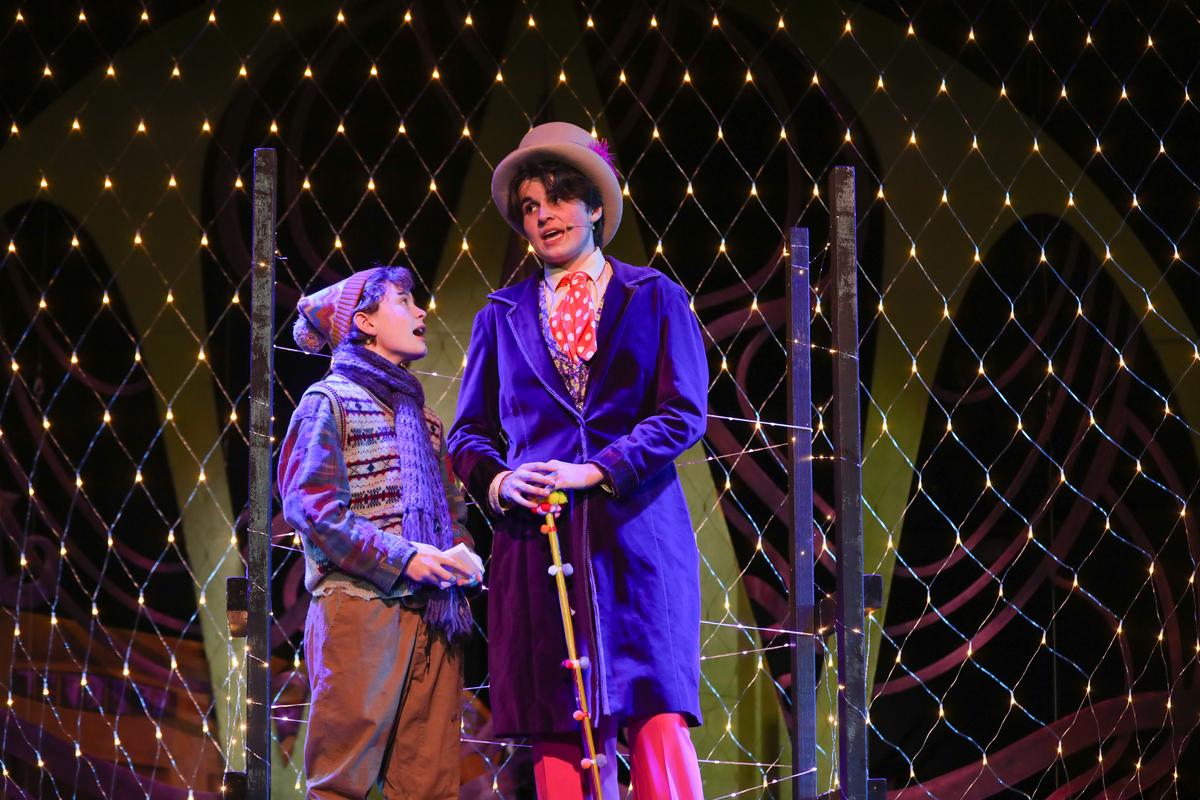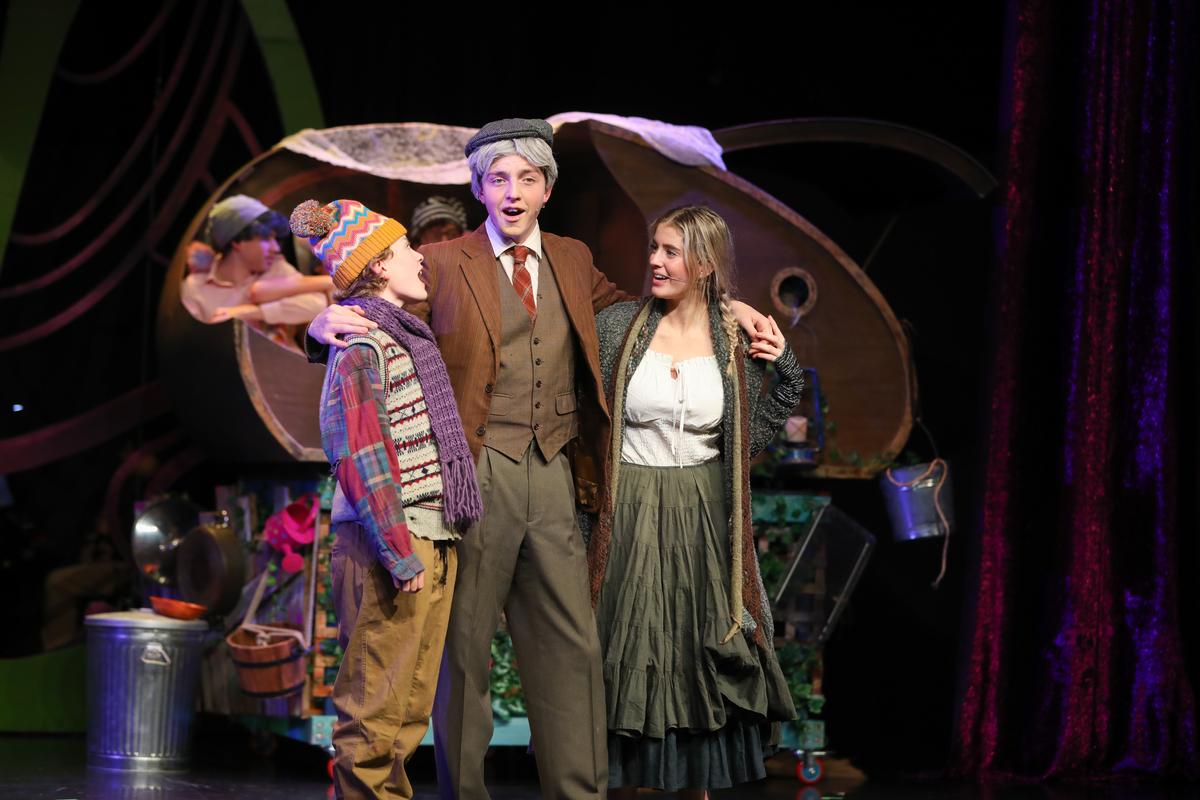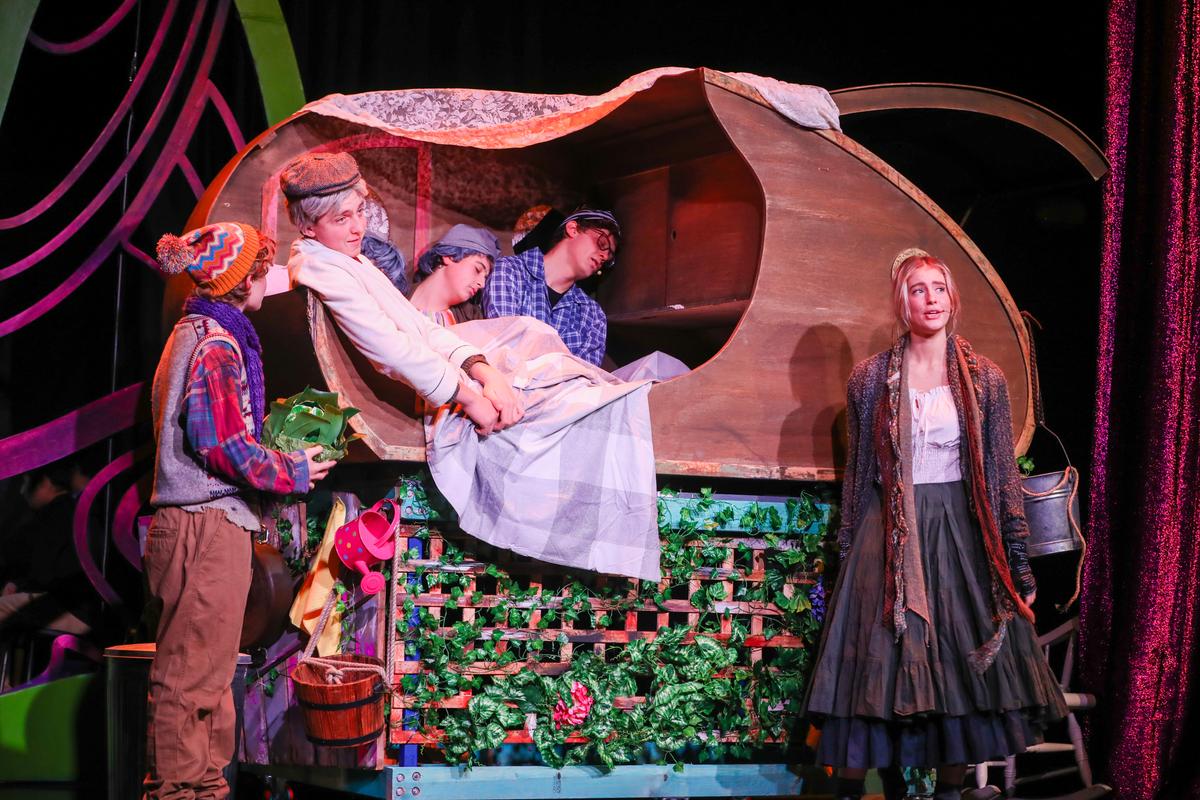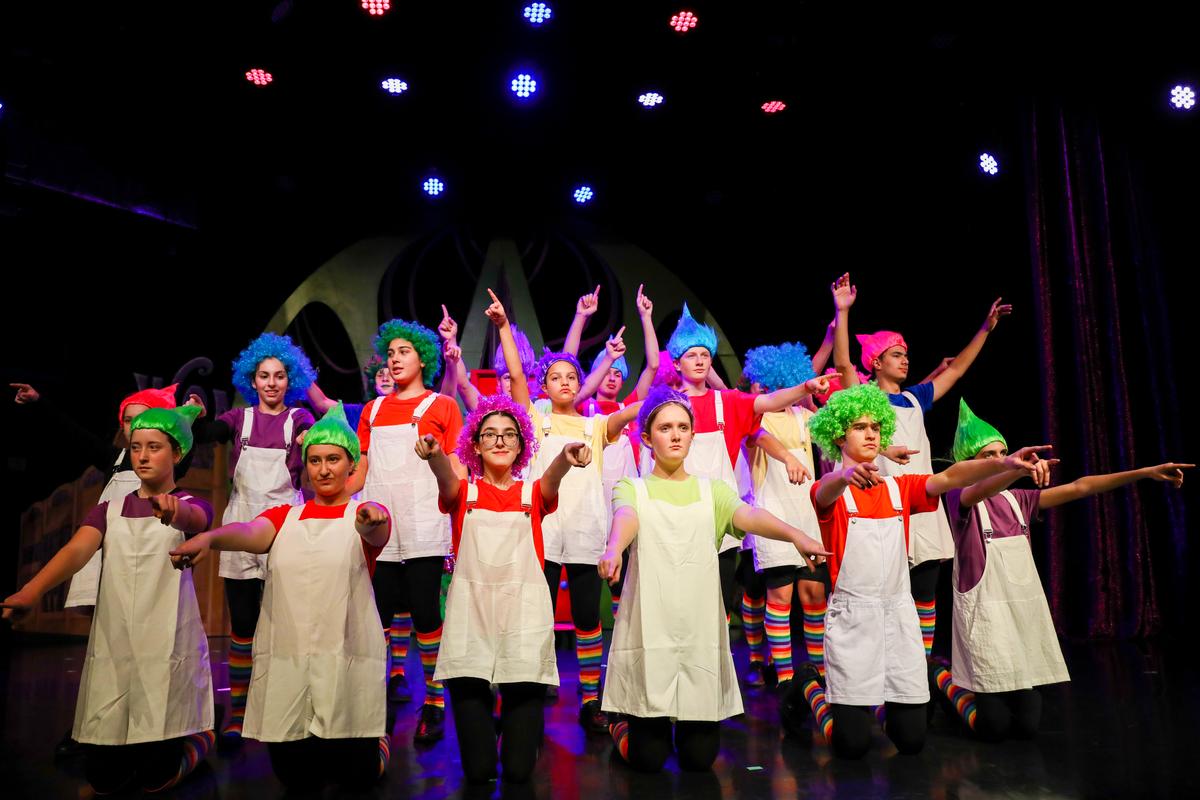Principal
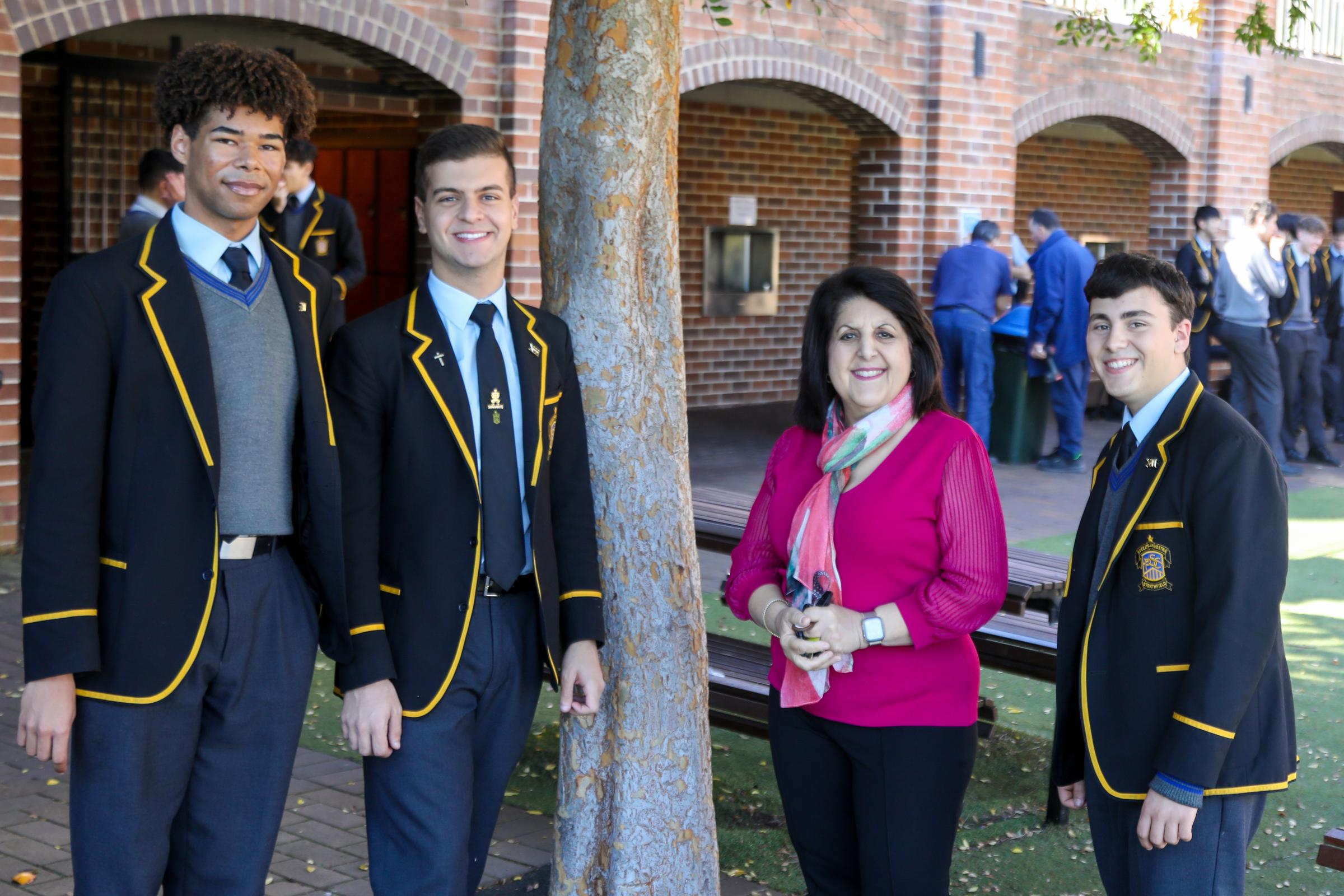
College Theatre Productions: Are They Really Worth It??
Well, while only the individual teachers can answer that question (and certainly don’t ask them it the week before the show), from the perspective of pupils, parents/carers and the wider school, the answer is an unequivocal “Absolutely!”.
You see, there is nothing like a school production for bringing pupils together in a sustained, shared experience. Sports days can be exciting, concerts can be rewarding, and residential trips can be great fun, but only a school production provides so many boys with so many life-enhancing opportunities to be experienced all together. These include:
- Instilling a sense of common purpose
- Developing teamwork and leadership skills
- Enthusing young learners
- Sparking an interest
- Building friendships
- Increasing confidence
- Positive working relationships with the opposite sex.
Productions are not just for confident, extroverted pupils. They can offer plenty for the quieter, less flamboyant members of the community too.
Directed and produced well, as Ms Duff’s work attests, a production can really bring children out of their shells and be hugely influential in developing self-confidence and a sense of self-worth, not to mention a host of other transferable skills.
Isolated, socially withdrawn children can be transformed by their involvement in a school play, as their shared experiences gradually bring them closer to their peers. Indeed, the rehearsal period, and particularly the performance days, can create new and enduring friendships, such is the impact of a production.
I have witnessed this so many times while watching school productions. I remember one child in particular who had been really struggling to integrate in his (relatively) new school. He was often alone and isolated, and clearly felt awkward and uncomfortable a lot of the time.
His transformation began when he was cast in a medium-sized role in a production. Suddenly he was involved; he had a way in. He rehearsed with different groups of children and got to know them outside of the classroom in a more structured way than in the playground. Gradually his confidence grew, and friendships developed.
He became increasingly at ease. The production was the making of him, and before long, the impact could clearly be seen in other areas of his school life too.
And that in itself is probably enough of a reason for most teachers to go through with it, regardless of how exhausting it can be. But actually, the benefits go even further. A school production has the power to bring together the entire school community, not just those directly involved. It generates its own momentum.
It excites and engages; unifies and motivates. It creates a wonderful focus for pupils and teachers alike. Whole schemes of work can be devised around the show and almost every subject or department within a school can find itself lending a hand in one way or another.
For those teaching English, a production serves as the perfect opportunity to develop and assess spoken language, helping children to speak audibly and fluently, gain and maintain the interest of their listeners, vary tone, pace and inflection.
And don’t forget how fun it can be to design posters (art), create props (tech), manage ticketing (maths), help backstage or front of house. Some children may not enjoy performing but can gain immeasurably by being given meaningful opportunities in other areas.
There are other less immediately obvious benefits too.
Singing within a production, where there is context, narrative, characters, themes and usually an excellent array of musical styles and genres, often leads to some of the best, strongest, most passionate singing that children can do, perhaps because of the production framework which allows them to give their all with less fear of embarrassment. Or perhaps just because it’s more fun.
Because really, fun is what it should be about – indeed, must be about. And not just for the children. Teachers shouldn’t have to suffer in the process and deserve to enjoy it as much as anyone – more so even, given their efforts.
So, is it worth it? Well, there’s no getting away from the fact that the work that goes into a school production is colossal. But what makes it truly worthwhile is not one person heroically shouldering the burden, but when it serves to bring together the whole school community in a memorable shared experience.
After all, if as a school you can succeed with a production, you will probably be able to succeed in most other areas too!
Congratulations to all of these boys who were in the production, especially Michael and Knox who were the leads.
Cast from SPC
Michael Bridge (Willy Wonka) , Knox Garnett (Charlie Bucket), Declan Giles (Grandpa Joe), Gus Cockrell (Augustus Gloop), Benjamin Chase (Mr Beauregarde), Simon Khoury (Mr Salt), William Zeng (Mike Teavee), Isaac Edmonds (Grandpa George), Dylan Celegon (Grandma Georgina), Samuel Avvenevole (Grandma Josephine), Joe Hallifax (Cherry Sundae), James Marchant (Jerry Jubilee), Xavier Kenniff (Head Oompa), Mateusz Milewski (Head Oompa), Brando Flammia (Oompa/Jeremy), Daniel Ayoub (Mr Bucket), Mark Aglieco (Oompa), Jonathan Berkman (Oompa), Jamie Cipollone (Oompa), Raphael Cipollone (Oompa), Riley Cipollone (Oompa), Max D’Ambrosio (Oompa), Thomas Doherty (Oompa), Pablo Doherty (Oompa), Marco Geronimo (Oompa), Elijah Mannah (Oompa), Jamie Padd (Oompa) and Norman Fox the miniature Dobermann (himself).
Band Members from SPC
Rowan Bleasel (Cello), Christopher Costa (Clarinet), Anthony del Popolo (Percussion), Anthony Jayaseelan (Violin), Christopher Mok (Keys), Mathieu Nguyen (Oboe), Isaac Nigro (Saxophone), Henry O’Reilly (Trumpet), Aiden Park (Clarinet), Denzel Tan (Keys), Elijah Tan (Keys) and Isaac Tannous (Trombone).
Crew Members
Zachary Ferris, Alexander Hennessy, Nathaniel Hoang, Alex Jun, Julian Rinehart, Jordan Wehbe.
Life Lessons from Charlie And The Chocolate Factory
It was so much fun watching our students sharing Charlie and the Chocolate Factory, one of my all-time favourite children’s books, with our students, staff, and families last week. As with all great literature, the story is more than a poor boy finding a Golden Ticket in a Wonka chocolate bar that earns him a tour of Mr Willy Wonka’s Chocolate Factory and ultimately the role of Mr Wonka’s successor. Embedded in this fantastic tale are life lessons that apply today just as much as they did in 1964 when the book was first published.
Here are some things we can learn from Charlie and the Chocolate Factory:
- Learn to follow directions. Augustus Gloop, Violet Beauregarde, Veruca Salt, and Mike Teavee all disregard instructions to satisfy their own wants and suffer horrible consequences.
- If you dream it, you can make it happen. Nothing is impossible! All of the creative confections in the factory are the result of dreaming big and thinking outside of the box. As Willy Wonka says, “I am the maker of music, the dreamer of dreams!”
- The world doesn’t revolve around you. Greed is unattractive and often gets you in trouble. Greedy Augustus Gloop, like the other spoiled children, teaches us that drinking from the chocolate river just because you want to and cannot control yourself, only means you have contaminated the chocolate for everyone else and you are going to end up in the toffee room being pulled and stretched. Think about how your actions affect others.
- Be grateful for the important and simple things in life. Although Charlie could be jealous of the spoiled children who also found Golden Tickets, we don’t see him comparing himself to those more fortunate. Charlie is a kind and loving boy. Instead of yearning for materialistic things, Charlie focuses on his loving family and the simple joy of enjoying the sights, sounds, and smells of the factory with Grandpa Joe.
- The best things in life are worth waiting for. Trust the process. Unlike the other children touring the factory, Charlie shows patience and takes time to marvel at and enjoy every invention and room in Wonka’s Chocolate Factory. He does not just focus on his own wants and whims. The expression “good things come to those who wait” certainly applies in this story.
Please continue to read great books full of important lessons with your children at home. You might consider reading some of Roald Dahl’s other books, such as Matilda, James and the Giant Peach, The Witches, and The BFG, to enjoy marvellous characters involved in imaginative tales that offer real-world lessons about life.
Staff News/Changes
- We wish Ms Giulia Ralton well as she commences her parental leave and awaits the birth of her child. We pray for a safe delivery.
- Please keep Ms Selina Goodwin (Student Services) and Ms Amanda Metua in your prayers because they have been on extended sick leave and are both recovering from surgery.
- Ms Gillian Daley has been seconded to the EREA National Mission and Identity Team during Term 3. Ms Jasmine Porter will take on the role of Acting Director of Identity and Ms Rebecca Horswood-Reid will take on the role of Acting Head of Religious Education (Secondary).
- Ms Melanie Vescio will be joining our staff as a Religious Education Teacher for Term 3 to cover some of Ms Daley, Ms Porter and Ms Horswood-Reid’s classes to relieve them for their promotional appointment positions. Ms Vescio has over 14 years of teaching experience with eight years as a Religious Education Coordinator. She has been doing casual teaching at the College this year and is known to some of our students.
Dr Vittoria Lavorato
Principal
SPC boys can do anything!
**except divide by zero


